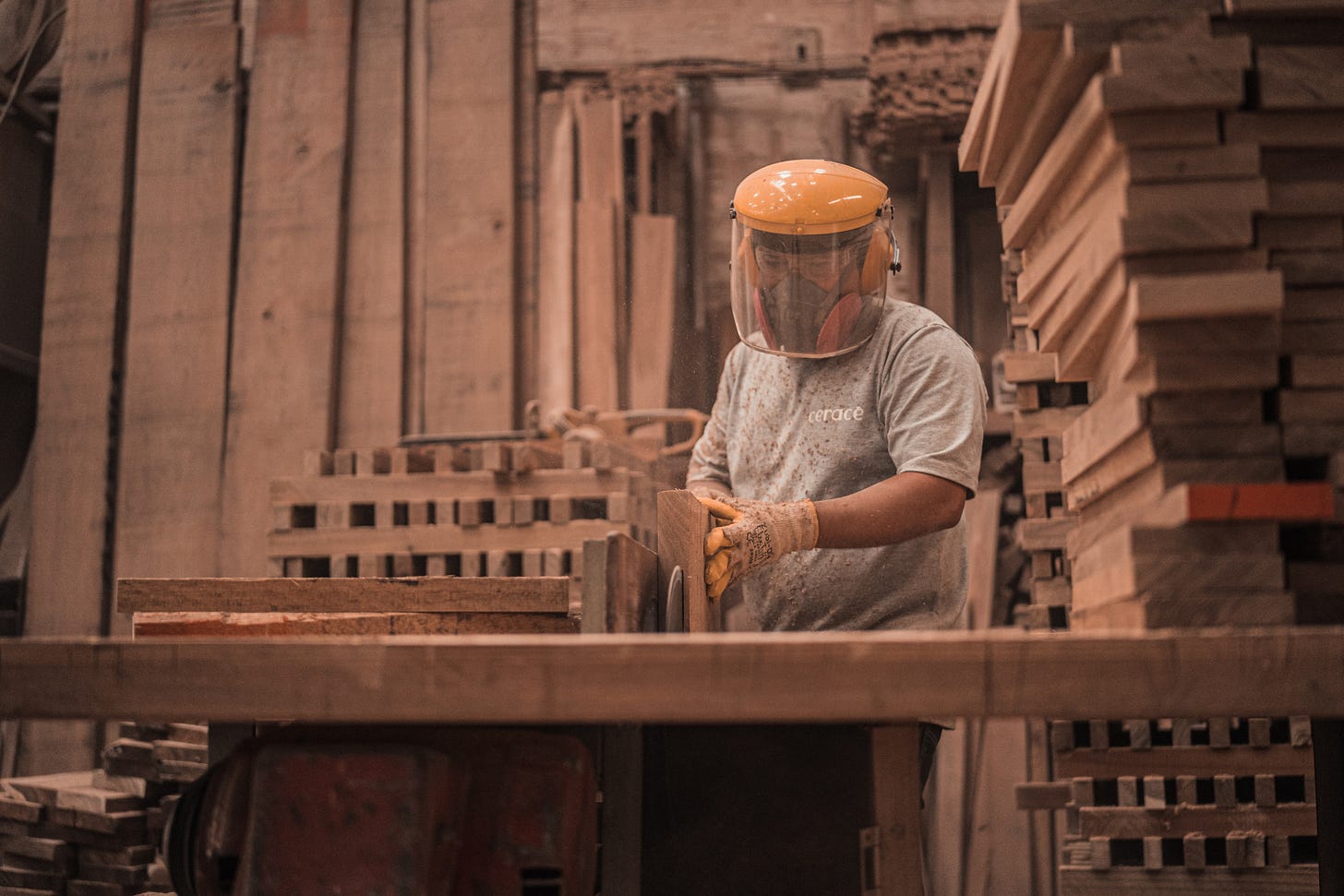Do Taxpayers Pay for Big Ten Facilities?
The world runs on polite fictions, and I’m mostly fine with that. For example, college campuses are full of buildings that are backed by “internal loans” that will never be paid off when fundraising estimates aren’t hit. But ideally, those buildings should be full of labs, classrooms, and learning spaces — not administrators making, in some cases, several million dollars a year on the backs of 20-year-olds’ woefully undercompensated labor.
Michael LeRoy pointed out in the News-Gazette this week that, at the University of Illinois, “the Smith Football Center and Ubben expansion [Ubben is a building for athletics administrators on campus] project were entirely funded by ‘internal loans’ from the UI System — specifically, $32.5 million for the Ubben construction project. The football loan amount was not reported, but The News-Gazette reported in July 2017 that the project cost $79.2 million.
Annual reports show that total debt for Illinois athletics was $246,518,481 in 2018, and $323,509,449 in 2019. The difference — about $77 million — roughly matches the internal loan amount for the football practice facility…In 2020, Illinois athletics slowly chipped away at its huge debt. Contributions exceeded interest payments by about $4.2 million. Projected over 13 years, however, this pace would fail to pay back the UI System.
Also, Illinois athletics spent $8.5 million more on facilities interest payments than athletic scholarships.”
Here’s your chance! The moment you’ve all been waiting for! The part where I ask you to share the newsletter!
Americans Have No Idea What the Supply Chain Really Is
A smart, straightforward story from Amanda Mull on what’s behind our ongoing “Out of Stock” and “Shipment Delayed” moments in the United States:
“To Americans whose lives have gotten progressively closer to normal this year — who are back in the office, whose kids are in school, who eat inside restaurants and go on vacation without much worry — these nagging problems can be baffling. They shouldn’t be. Americans are habitually unattuned to the massive and profoundly human apparatus that brings us basically everything in our lives. Much of the country’s pandemic response has treated us as somehow separate from the rest of the world and the challenges it endures, but unpredictably empty shelves, rising prices, and long waits are just more proof of how foolish that belief has always been…
If you get frustrated by your lack of choices at the grocery store or see a little warning about shipping delays at the top of a website and are told that ‘the supply chain’ is at fault, it’s easy to imagine those problems as empty warehouses or idle factories or backed-up container ships or depleted fleets of semitrucks — problems concerning industrial machinery incongruous to the scale of human life and fundamentally disconnected from how you live yours. That’s why the results of these kinds of disruptions can feel so random. But this understanding of the problem is also a little too convenient for consumer-facing companies, which often go to great lengths to ensure that no one in the general public thinks too hard about what any of this means, or why it happens. They want shopping to be fun, to be a relief, to be something that feels as though it solves problems, instead of being a problem itself.
Both at home and abroad, labor is the ghost in the machine. The supply chain is really just people, running sewing machines or loading pallets or picking tomatoes or driving trucks.” Read more.

An Appreciation: John Prine’s Debut
John Prine's debut album was released 50 years ago this week. Melancholy and pointed and sunny and silly. To be so insightful and have no impulse to dress it up all fancy? To feel all of it so deeply and dance through it with a grin? A singular guy in a big old goofy world.
Devastated in one moment: “Just give me one thing that I can hold on to. To believe in this livin is just a hard way to go.”
Dripping joie de vivre the next: “Well, I sat there at the table, and I acted real naive, for I knew that topless lady had somethin up her sleeve.”
It’s not my favorite John Prine album — that honor goes to “Sweet Revenge” and its honkytonk sarcasm. But it’s my second favorite John Prine album…which might make it my second favorite album in the whole world.
Say it plain…







